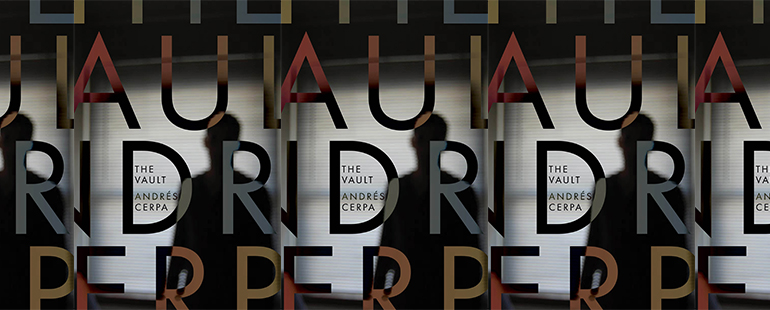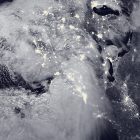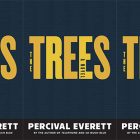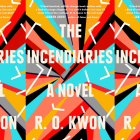Reinventing Loss in The Vault

The Vault
Andrés Cerpa
Alice James Books | June 15, 2021
In The Vault, his striking sophomore poetry collection, Andrés Cerpa is our Virgil, offering us a path through the dark realm of loss with fragments of unsent letters, indelible imagery, and exquisite language. Early in the collection, he sets his intention: “despair & I are inventing a word / world by world / marked by a long lifeline & a canyon of darkness what I want to uncover / & bury at once.” Instead of creating a world word by word—the traditional domain of a writer—Cerpa encrusts each syllable with layers of sometimes conflicting, always gripping, emotions and images. There are universes in each word, despair and loss demanding that we create a new vocabulary, and Cerpa creates these universes in order to heal: “The options—reinvent my loss or fail to recover.”
Indeed, each letter, each confession, each word, is Cerpa’s reinvention of loss. The slim and mighty volume is divided into two sections, marked by a significant syntactical difference. Each offers an at times loosely linked long-form poem: the first, “Join Me,” is without punctuation other than ampersands, which suggests an unstopped accumulation, reminiscent of the accretive weight of grief. Readers have the freedom to make their own decisions about where to take a breath, where to pause, how to flow or stay still. This both allows us to interact with the poem as a co-creator in the solitary experience of heartache.
The second section, “The Nightmare Touched Its Forehead to My Lips,” is seeded with periods and commas, along with a dotted square symbol as breaks between smaller sections of couplets. There’s a kind of breathlessness and a sense of a permeable boundary between such fragments. They are connected—as all the thoughts we carry within ourselves are. The title recognizes how our recurrent nightmares may become our unwanted intimates, with the unexpected result that such repeat engagement creates a physical closeness that resembles the comfort of lips on a forehead, as one might receive from a parent checking one’s temperature. Here, Cerpa reveals the irony of grief: even as it separates us from other experiences, it is the most intimate of emotions—perhaps even greater than love—in the way it talons itself into the heart, mind, and soul.
There’s an abundance of white space throughout the book as a whole—there are at most, barely 100 words on each page—and the absence, and later presence, of punctuation builds an experience of a continuum, a conclusion-less collection of thoughts and images. The result is a visually open read that demands a deliberate contemplation. Each word positioned in the white expanse of the page feels vulnerable and unprotected symbolically, as we are individually against the unforgiving fragility of life and the sledgehammer of grief.
Yet as lyric as his work is, Cerpa is sharply straightforward when describing the pain of his own personal losses:
Dear Lord,
I pronounce your name & believe
I don’t believe.Why’d you kill my father
through 17 years,Then let him kill himself?
The speaker wanders in vain hoping for some, any, response in return. What else can a poet do, but employ language to bridge the vast abyss between the living and dead, the ground we all will cross, with or without Charon, with or without our spirit guides?
The great—if unbearable—truth is that loss is a hole that can never be filled, regardless of attempts through art, addiction, distraction. We feel this sharply in Cerpa’s address to his father:
A radiant silence
envelopes my veins
with its letter—
Dad,I still need you.
Yet there is also freedom within the brevity of Cerpa’s writing. Each word—each world—is necessary, each repetition strikes harder, as if to suggest that strong emotion can only be released in fragments, in shrapnel, like how in a state of panic or fear or sorrow or rage, we speak in words unchained from order, structure, and embroidered meaning. Language isn’t entirely functional in such circumstances, and Cerpa navigates the friction between conveying the helplessness of trying to express what is inexpressible, amid the cruel accrual of despair, while doing so poetically and in full control of his formidable expressive powers.
The final lines of the book, which are seemingly addressed to Cerpa’s late father, both encapsulate what the collection so hauntingly reaches for—and exceeds:
The real goes unanswered—
god, afterlife,
migration. And what I asked in the first dream
why he hadn’t come sooner—you have to travel first to return.
Perhaps instead of seeking answers, we must first sit with the questions. Acknowledgment of our losses, our powerlessness in the face of what is unanswerable in this plane is a step toward dealing with—if not healing from—our ephemerality, our blink-of-an-eye lives. Cerpa has traveled a long way to return with this collection, and through his skillful writing, his unanswered missives offer their own reply.



